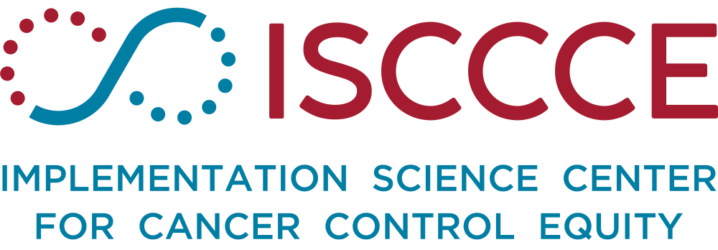Project Summary: This study explores stakeholder perspectives on defining, measuring, and addressing health equity in cancer prevention and control in community health centers (CHCs) using qualitative interviews. Health equity has been identified as a strategic and guiding priority within cancer prevention and control toward the goal of reducing health differences that reflect societal injustices. Pragmatically, this means ensuring that groups of people who are disproportionately impacted by healthcare inequities based on social determinants of health, factors such as income, occupations, education, language, geography, gender, race/ethnicity, receive evidenced-based interventions and benefit from them similarly to more advantaged groups.
Dissemination and implementation (D&I) science can accelerate progress toward health equity goals in cancer prevention and control by meaningfully engaging with clinic stakeholders to improve measures and methods for equitable implementation. CHCs are critical settings for promoting health equity in cancer prevention and control given their service and outreach to communities that experience the greatest health inequities. This formative research will fill a gap in D&I science by advancing pragmatic definitions of health equity that can be used in future research developing and testing implementation strategies to promote equity in cancer prevention and control.
Project Lead: Kelly Aschbrenner
Publication: Aschbrenner KA, Cruz J., Kruse G, Nguyen H, Huebner Torres C, Celli M, Sarcione C, Singh D, Emmons KM. Leveraging an implementation science partnership network to understand how Federally Qualified Health Centers operationalize and address health equity. Translational Behavioral Medicine. Published August 5, 2023. doi:10.1093/tbm/ibad046
